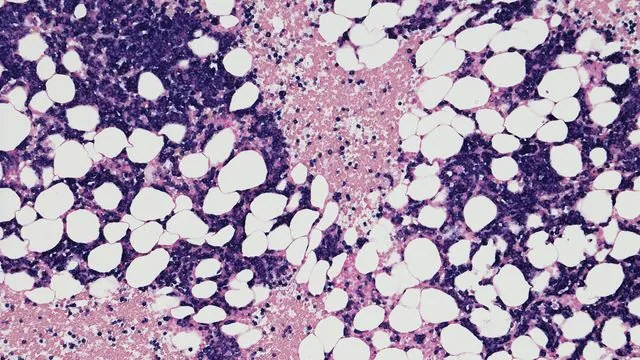
Revolutionary Blood Test Detects HPV Cancer with Unprecedented Accuracy
2025-05-20
Author: Daniel
Groundbreaking Blood Test Offers 99% Sensitivity for HPV Cancers
In an astonishing breakthrough, researchers at Mass General Brigham have unveiled HPV-DeepSeek, a cutting-edge liquid biopsy blood test that boasts a remarkable 99% sensitivity for the early detection of HPV-associated head and neck cancers. This innovative test leverages whole-genome sequencing technology to identify cancer markers well before symptoms arise, offering a potential game-changer in cancer care by facilitating earlier interventions.
Key Findings and Implications
HPV-DeepSeek does not only excel with its 99% accuracy; it also surpasses conventional detection methods currently in use. Current practices often require patients to seek treatment only after experiencing symptoms. This early detection capability could lead to timely treatments that minimize side effects, fundamentally transforming patient outcomes.
Unmasking HPV’s Role in Oral Cancers
Human papillomavirus (HPV) is responsible for about 70% of oropharyngeal cancers in the U.S., a category that has been on the rise at a worrying rate. Unlike cervical cancer, for which routine early detection methods exist, no such tests are available for these head and neck cancers. Dr. Daniel Faden, a leading figure in the research and a surgical oncologist, emphasizes the urgent need for proactive screening.
"Developing HPV-DeepSeek aimed to create a minimally invasive and significantly more sensitive detection method for HPV cancers," Dr. Faden remarked. "Our evidence suggests this approach allows us to diagnose more accurately and potentially screen for cancers at their earliest stages."
How HPV-DeepSeek Works: A Closer Look
The test functions by detecting fragments of the HPV genome released into the bloodstream from tumors, enhanced by analyzing nine other blood features. Unlike traditional liquid biopsies that focus on limited viral sequences, HPV-DeepSeek employs comprehensive genomic sequencing, dramatically increasing detection capability. In their study, researchers evaluated 304 participants—half with HPV-associated cancers and half healthy controls—and found that this new method significantly improves early detection.
Future Prospects: Screening Before Tumors Develop
Excitingly, researchers are conducting further studies to explore the test’s ability to detect cancers even years before they manifest. In preliminary findings, they successfully identified cancer in 79% of individuals who later developed HPV-related oropharyngeal cancer, with the first positive results appearing nearly eight years ahead of clinical diagnosis. This represents a groundbreaking advancement in the feasibility of blood-based screening for HPV cancers.
Next Steps in Cancer Detection and Management
The potential for HPV-DeepSeek is vast, not just in screening but also in refining post-surgical care. Current investigations are focusing on how this innovative approach can detect microscopic residual disease after surgery, aiding decisions for follow-up treatments such as radiation therapy. The desire for more sensitive detection methods is also echoed in another groundbreaking study from the same research team, which introduced a test named MAESTRO for non-HPV related head and neck cancers.
Dr. Viktor Adalsteinsson, director at the Broad Institute, highlighted the clinical significance of these liquid biopsy techniques. "These approaches enhance our ability to find numerous small traces of cancer DNA, greatly improving sensitivity and accuracy, which brings us one step closer to personalized cancer care."
Conclusion: A New Era in Cancer Detection
The implications of this research are profound, signaling a new era in how HPV-associated and possibly other cancers could be detected and treated. By shifting the focus to earlier intervention, we might mitigate the need for drastic treatments and improve prognoses for countless patients.

 Brasil (PT)
Brasil (PT)
 Canada (EN)
Canada (EN)
 Chile (ES)
Chile (ES)
 Česko (CS)
Česko (CS)
 대한민국 (KO)
대한민국 (KO)
 España (ES)
España (ES)
 France (FR)
France (FR)
 Hong Kong (EN)
Hong Kong (EN)
 Italia (IT)
Italia (IT)
 日本 (JA)
日本 (JA)
 Magyarország (HU)
Magyarország (HU)
 Norge (NO)
Norge (NO)
 Polska (PL)
Polska (PL)
 Schweiz (DE)
Schweiz (DE)
 Singapore (EN)
Singapore (EN)
 Sverige (SV)
Sverige (SV)
 Suomi (FI)
Suomi (FI)
 Türkiye (TR)
Türkiye (TR)
 الإمارات العربية المتحدة (AR)
الإمارات العربية المتحدة (AR)